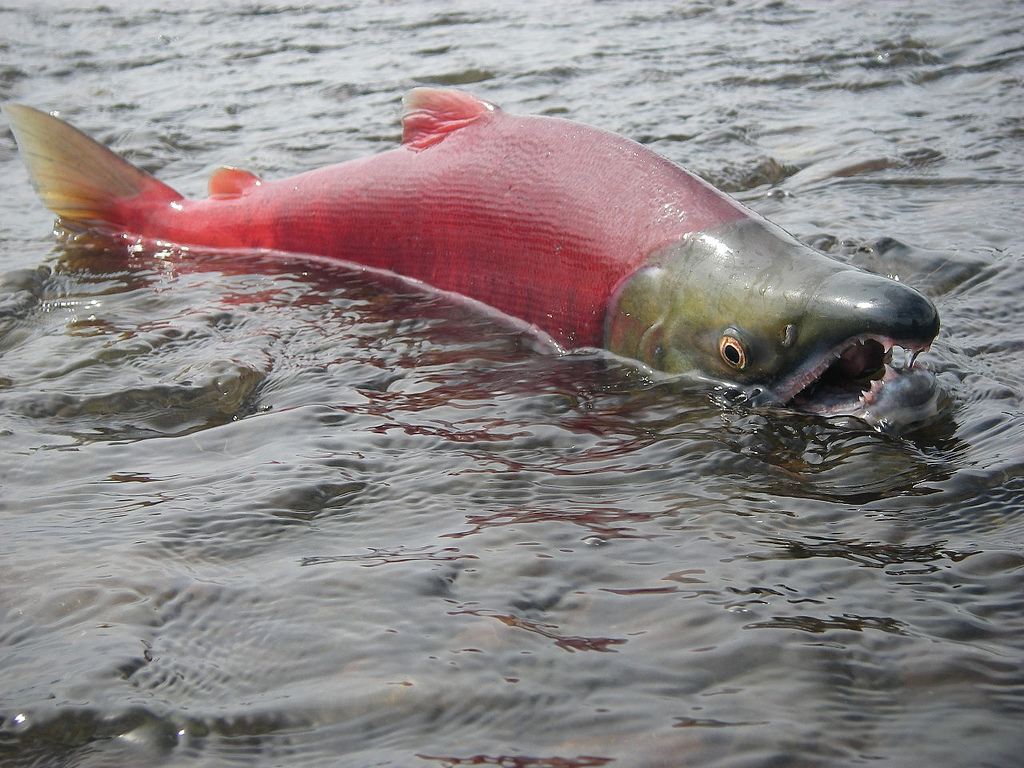Valuing and understanding fish populations in the Anthropocene: key questions to address
Posted by Karl Filipsson | Conservation ethics
A spawning male sockeye salmon (Oncorhynchus nerka)
During the 50th anniversary meeting of the Fisheries Society of the British Isles at the University of Exeter in July 2017, the participants held a workshop to develop a publication titled “Valuing and understanding fish populations in the Anthropocene: key questions to address”, for the special issue of the Journal of Fish Biology.
John Piccolo from Karlstad University contributed to this paper, focusing on a current research theme on conservation ethics. The paper is now published. Access the paper here, or contact any of the authors. John has also promised a coming NRRV post highlighting some recent work in this area.
In the abstract of the paper, the authors write:
“Research on the values of fish populations and fisheries has primarily focused on bio-economic aspects; a more nuanced and multidimensional perspective is mostly neglected. Although a range of social aspects is increasingly being considered in fisheries research, there is still no clear understanding as to how to include these additional values within management policies nor is there a cogent appreciation of the major knowledge gaps that should be tackled by future research.
This paper results from a workshop held during the 50th anniversary symposium of the Fisheries Society of the British Isles at the University of Exeter, UK, in July 2017. Here, we aim to highlight the current knowledge gaps on the values of fish populations and fisheries thus directing future research. To this end, we present eight questions that are deeply relevant to understanding the values of fish populations and fisheries. These can be applied to all habitats and fisheries, including freshwater, estuarine and marine.”


